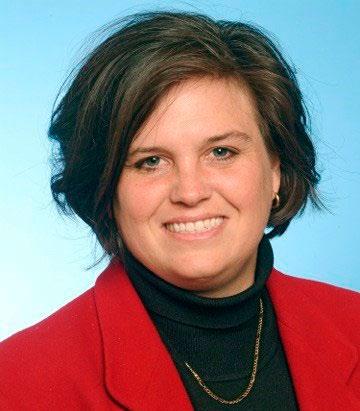
3 minute read
One Program, Two PhDs on Two Continents
Northeastern’s new international doctorate program—the Global Experiential PhD—provides students with an opportunity to earn separate PhDs from two universities in two continents while dramatically expanding the breadth of their research. As an added benefit, the program also expands the international job opportunities for graduates.

Stefano Basagni, associate professor, electrical and computer engineering
“It’s like having two passports,” says Associate Professor of Electrical and Computer Engineering Stefano Basagni, a thesis research advisor in the program. “To get a job at an American company, it helps if you have an American PhD, and the same is largely true of a European degree in the European Union.”
For Irene Tallini, PhD'24, computer engineering, the program provides the opportunity to conduct research in the United States while maintaining her relationship with Sapienza University of Rome, where she earned both her undergraduate and master’s degrees.
“This program provides huge intercultural opportunities,” Tallini says. “The professors in Northeastern’s Electrical and Computer Engineering department are experts in their sectors and I’m also excited about having access to the university’s unique facilities.”
As an engineer focused on wireless communication among underwater and aerial drones, Tallini is particularly interested in Colosseum, the world’s largest radio frequencies emulator (which is part of Northeastern’s Institute for the Wireless Internet of Things), and the Cyber and Unmanned Aircraft Systems R&D facility, both of which are situated at Northeastern’s Innovation Campus in Burlington, Massachusetts.
Because students spend half of their time at each institution, they are exposed to two different research cultures and the expertise of faculty with different areas of specialization. The program is also intentionally flexible to enable interdisciplinary research, thereby allowing students to pursue research in different fields at each institution. They must apply to each program independently and fulfill all of the academic requirements of both programs. Under the supervision of a research supervisor from each institution, they write a single dissertation that earns them a separate PhD in each country.
The first two partners with the Northeastern program are Sapienza University of Rome and the University of Hong Kong. So far four students from these institutions have enrolled at Northeastern, including three engineering students from Sapienza who began in Rome and will come to Boston for the summer semester of 2021. There are additional partnerships in and the works.

Sara Wadia-Fascetti, vice provost, PhD Network, and professor, civil environmental engineering
“Northeastern is building a selective network of educational institutions around the globe,” says Vice Provost Sara Wadia-Fascetti, who is head of Northeastern’s PhD Network. “We are a global institution—a networked institution. This increases mobility for our students and further extends our research outside Boston.”
“This program is based on the concept of convergence, which is a key component of interdisciplinary research,” says Wadia-Fascetti. “It’s important to maximize a student’s exposure to many different concepts and cultural experiences that connect ideas to one another and translate disciplines to one another. This exposure influences both the scope and direction of their research.”

Luca Caracoglia, associate professor, civil and environmental engineering
Students aren’t the only ones who benefit from these partnerships, says Associate Professor of Civil and Environmental Engineering Luca Caracoglia, who along with Basagni has a longstanding relationship with Sapienza University and helped spearhead the new partnership.
Caracoglia, who is an expert on wind engineering and wind load effects, recently hosted a workshop bringing together Northeastern and Sapienza faculty who focus in structural engineering and geotechnical/geo-environmental engineering and who are currently advising civil engineering PhD students.
“For faculty, it’s a way to bring new perspectives to our research ideas and collaborate with experts in Italy through our students,” Caracoglia says.
Basagni agrees, adding that the program also provides important benefits for the university as a whole. “This is a way to attract the best students from universities around the world while enhancing our international visibility and connectedness.”









